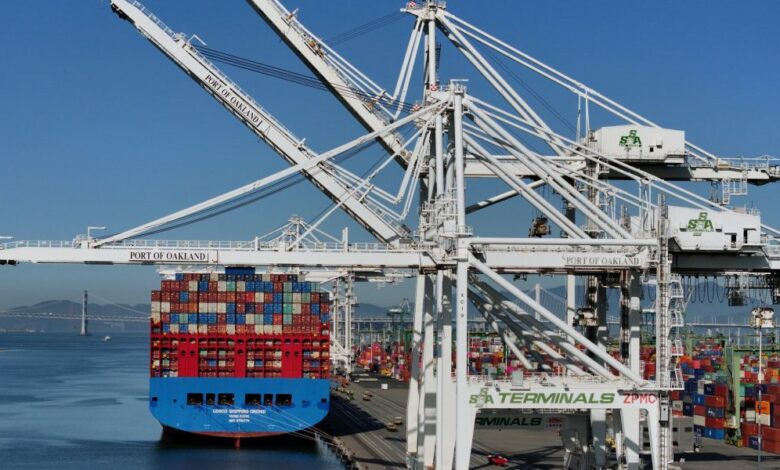Chinese company at the center of Biden’s U.S. port crane order denies it’s a security threat


Chinese shipping cranes are fast becoming the latest item to get caught up in Washington and Beijing’s fractious relationship. U.S. officials have been talking about the security threat posed by Chinese-made cranes at U.S. ports for months. Then, last month, the U.S. announced an initiative to bolster cybersecurity at the country’s ports.
Now, the company at the heart of the controversy—China’s Shanghai Zhenhua Heavy Industries, also known as ZPMC—is denying that it poses a security threat. ZPMC said it “strictly adheres to laws and regulations of relevant countries and regions,” in a statement released on Sunday.
ZPMC accounts for over 70% of the global market in shipping cranes. There are over 200 Chinese-made cranes at U.S. ports, accounting for “nearly 80%” of the total, according to the U.S. Coast Guard.
These cranes help move goods through maritime ports. The cranes can often be controlled remotely, which U.S. officials fear could be an avenue for hackers to disrupt the economy. A recent congressional probe claimed to find over a dozen cellular modems on cranes that could be remotely accessed, the Wall Street Journal reports.
ZPMC, in Sunday’s statement, said that recent reports “can easily mislead the public without sufficient factual review.”
What is the Biden administration doing about cranes?
In late February, the Biden administration enacted an executive order to give officials more authority to improve cybersecurity at U.S. ports. It also allotted $20 billion in funds, drawn from money apportioned under the bipartisan infrastructure law and Inflation Reduction Act, to improve port infrastructure.
The money will also be used to encourage domestic production of cranes from the U.S. subsidiary of Japanese firm Mitsui.
On Friday, the American Association of Port Authorities that it’s found no known security breaches from Chinese-made cranes at U.S. ports, despite “alarmist media reports.” The association noted that cranes “can’t track the origin, destination, or nature” of cargo shipped in U.S. ports.
“I like a good spy movie, but you need a smoking gun to make it a blockbuster, and there’s no smoke in this story,” Cary Davis, the AAPA’s general counsel, said in Friday’s statement. Yet the association called on the U.S. to support local manufacturing of shipping cranes to balance out Chinese subsidies, which can make Chinese-made cranes 50% cheaper than their competition.
Source link




